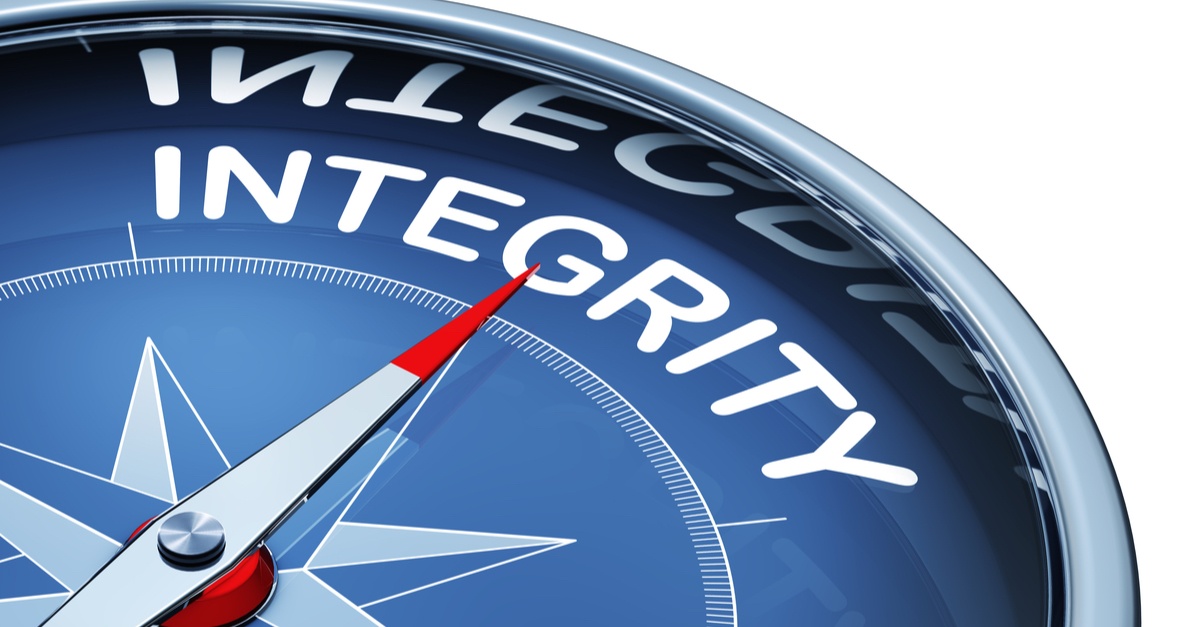As expectations increase for companies to adopt a holistic approach to ethical and responsible business, and organizations are under immense pressure to do well by their people and the planet through environmental, social, and governance (ESG) initiatives, building a culture of integrity is getting significant and much needed focus.
This corporate landscape requires leaders to be more intentional about setting expectations and consistently holding themselves and their people accountable to those expectations. Building a culture of integrity is no longer only about avoiding a public relations scandal, managing financial risk, or complying with laws and regulations. When it’s used for its highest and best purpose, it becomes a strategy – when successfully deployed – that strengthens brand strategy, customer relationships and employee loyalty.
Tony Jordan, EY Americas Forensic & Integrity Services Leader, describes it in this way, “Corporate integrity is not ‘greenwashing’ or being seen to be doing the right thing for the press. Integrity is behaving in a way that generate long-term value to support communities that organizations serve.” When this behavior is unfailingly embodied by the leaders at the top of the organizational chart the expectations cascade down through the ranks and become embedded in internal and external practices.
New York Times bestselling author and research professor Brene Brown defines integrity as “choosing courage over comfort”, meaning “choosing what is right over what is fun, fast or easy”. Easier said than done, for sure. From cultivating equitable and inclusive employment practices, to ethically managing data, to reducing environmental footprints, doing the right thing has never required more courage.
High-integrity leaders are consistent in their words and actions. These leaders do not modify their message to appease employees and customers or take shortcuts to win short-term approval from key stakeholders. They consistently “walk the talk” in good times and bad.
What is at stake when a leader isn’t “walking the talk”? Trust is eroded. Trust is foundational to effective teamwork because when trust exists, team members have confidence in a leader’s vision and decisions, even when those decisions are difficult or unpopular.
Leaders create the atmosphere and conditions for success. If a leader is not unfailingly modeling high-integrity leadership, the organizational culture erodes and becomes a breeding ground for unethical behavior. Like the keystone of an arch, when it cracks or crumbles, the whole structure collapses.
Integrity is an essential leadership trait, and it’s critical for senior executives who are charting the organization’s course and making countless decisions. Being a high-integrity leader requires these six qualities:
- Embodying the integrity agenda. Putting integrity at the heart of daily decisions and strategic initiatives integrates it into the organization’s DNA.
- Consistently adhering to and expressing ethical values and principles. This quality enables leaders to effectively reinforce and model core values for the organization. Trust and reputational capital will be inherently built because values and principles are being reliably put into practice.
- Being courageous. Leaders who are willing to take a tough stand when necessary, bring up the “undiscussables” (i.e., the “elephant in the room”), and openly and effectively deal with conflict are modeling the importance of embracing and working with the natural tensions that occur in every organization.
- Demonstrating authenticity. One of the world’s foremost leadership scholars, Dr. Lance Secretan, describes authenticity as “the alignment of the head, mouth, heart, and feet – thinking, saying, feeling and doing the same thing – consistently.”
- Owning mistakes. Leaders who admit they made a mistake – and do so quickly – demonstrate both courage and vulnerability. Taking personal responsibility for professional actions creates safety for others in the organization “own up” to versus “cover up” their missteps.
- Doing the right thing at the right time, regardless of the circumstances. This quality protects companies from pursuing short-term results at the expense of unethical behavior.
As leaders face new and weightier challenges that pose ethical dilemmas while managing through crisis and increased complexity, they are under intense scrutiny. There are many qualities leaders can lack and still be successful. Integrity is not one of them. Organizations that put integrity at the heart of everything they do will be more resilient and possess a distinct competitive advantage.
Emily Rogers, Founder & CEO of Emily Rogers Consulting + Coaching, is an executive and team coach. She strategically advises and supports individuals and organizations in growing and realizing their full potential in purposeful and balanced ways. You can connect with her at emilyrogers.com. Want to strengthen your capacity to lead with excellence and grow with purpose? Consider enrolling in Emily’s Leadership Development Programs.

